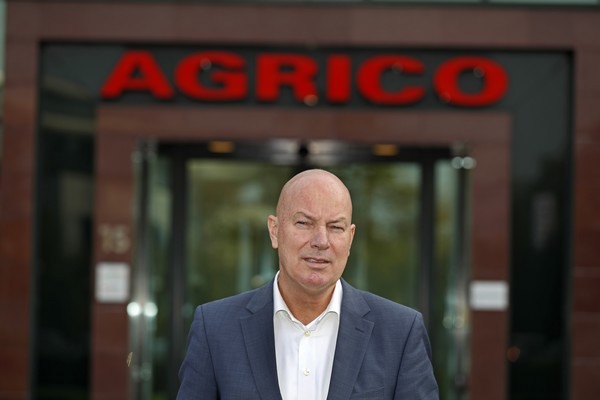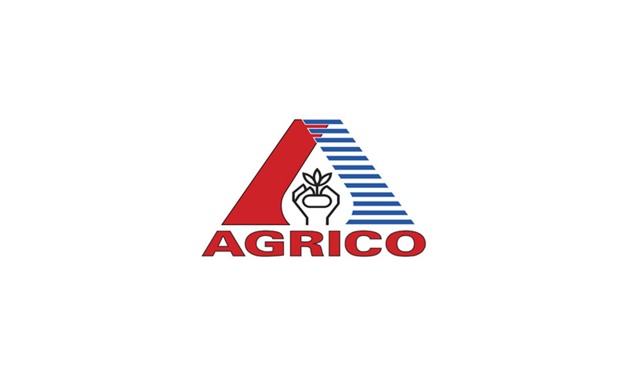“Agrico is, fortunately, doing well,” says the company’s Managing Director, Jan van Hoogen. That’s in answer to the question of whether the coronavirus pandemic affected this Dutch company. Agrico focuses on seed and ware potatoes. Jan notes that the demand for the coronavirus issues have caused the demand for ware potatoes to explode.

Jan van Hoogen, managing director Agrico
The crisis didn’t cause any problems for seed potatoes either. “We’d taken care of the entire seed potato area. At the start of the crisis, we were well into the process of deliveries. We, luckily, had few cancellations from the fries industry. The 2019 crop was barely affected by COVID-19. But, things are going to be more interesting with the new crop.”
Jan expects surplus french fry potatoes to cause some pressure on ware potato sales. But, he’s not overly concerned. Van Hoogen expects far-off seed potato exports to more or less continue too. He does, however, foresee an uncertain situation for African and Middle Eastern destinations like Morocco and Algeria. In Morocco, the coronavirus hammered the economy. And Algeria is highly dependent on oil. “It’s going to be interesting to see if they have sufficient foreign currency to buy seed potatoes. We have to start from the viewpoint that the season will become complicated,” says Jan.
Time pressure also plays a role. Seed potatoes must often be in the ground for a certain amount of time. “Seed potatoes need to go to, for instance, Algeria or Egypt, by Christmas at the latest. Otherwise, it’s over.” Some of Agrico’s seed potato acreage is earmarked for longterm contracts with the Fontane french fry potatoes.
Jan says they’ll have to wait and see what happens with french fry sales. That will determine if Agrico be able to get rid of all these potatoes. “It’s still too soon to comment. We’re only planting the seeds potatoes in April 2021. We’ll see how they progress. So, there are still quite a few questions about the season.”
Phytophthora resistance
Breeding is an important focus within Agrico. But, for now, the breeder is staying away from genetic modification. The company initially attempted this in the 90s. That was in partnership with a chemical company. But, because of the current regulations, it came to naught. The potato cooperative, therefore, decided not to invest any further in techniques that aren’t accepted in Europe.
“We believe that if these techniques do gain recognition in Europe, we’ll still have enough time to invest in them. Jan regrets that they can’t use techniques like Crispr-Cas to speed up the breeding process. He’s, however, not convinced that these techniques are as advantageous as people claim they are.
Instead, Agrico is concentrating on a traditional breeding process, including marker-based breeding. Agrico’s Phytophthora-resistant (Next Generation) potato varieties prove that this technique can also be used successfully. “We are, by far, the furthest on with this. For all the segments, we have varieties that have one or two Phytophthora-resistant genes.”
“We are very proud that we achieved this, using traditional methods,” says Van Hoogen. For the time being, Agrico remains focused on traditional breeding, anyway. The company doesn’t expect the new techniques to be allowed in Europe any time soon. Certainly not within the next ten years.
Challenges
Jan sees many challenges for the potato sector. The available potato acreage is a concern. “We are at the maximum when it comes to acreage for both seed and ware potatoes.” Soil-bound diseases are another worry. Jan’s noticed that creative thinking often solves these problems. That can be in the area of variety. But also when using soil, which he sees is being done much more cautiously.
Jan mentions another challenge - the ban on crop protection substances such as the germ inhibitor, CIPC. “There are alternatives. But these are often far costlier and less effective than CIPC. That’s a problem.” Van Hoogen believes this will undoubtedly result in the french fry industry showing more interest in varieties with longer shelf lives. Like the older Markies variety.
The ban on haulm killer, Reglone, and the disappearance of various insecticides is complicating potato cultivation. These substances are allowed in North America. So, the playing field isn’t level. That’s driving up European cost prices. Then, the ever-increasing weather extremes are yet another cause for concern. Late potato varieties seem to fare better under dry conditions.
“The hardy varieties don’t grow either when it’s very hot. They do, however, remain green and then recover when it rains. You need those kinds of potatoes to ensure you get sufficient yield,” Jan concludes. Despite all these challenges, Jan remains positive. He doesn’t think Dutch potato farming will disappear. If only thanks to the favorable weather and technically well-educated growers.
 Agrico
Agrico
T: +31 (0)527 639911
Info@agrico.nl
www.agrico.nl
